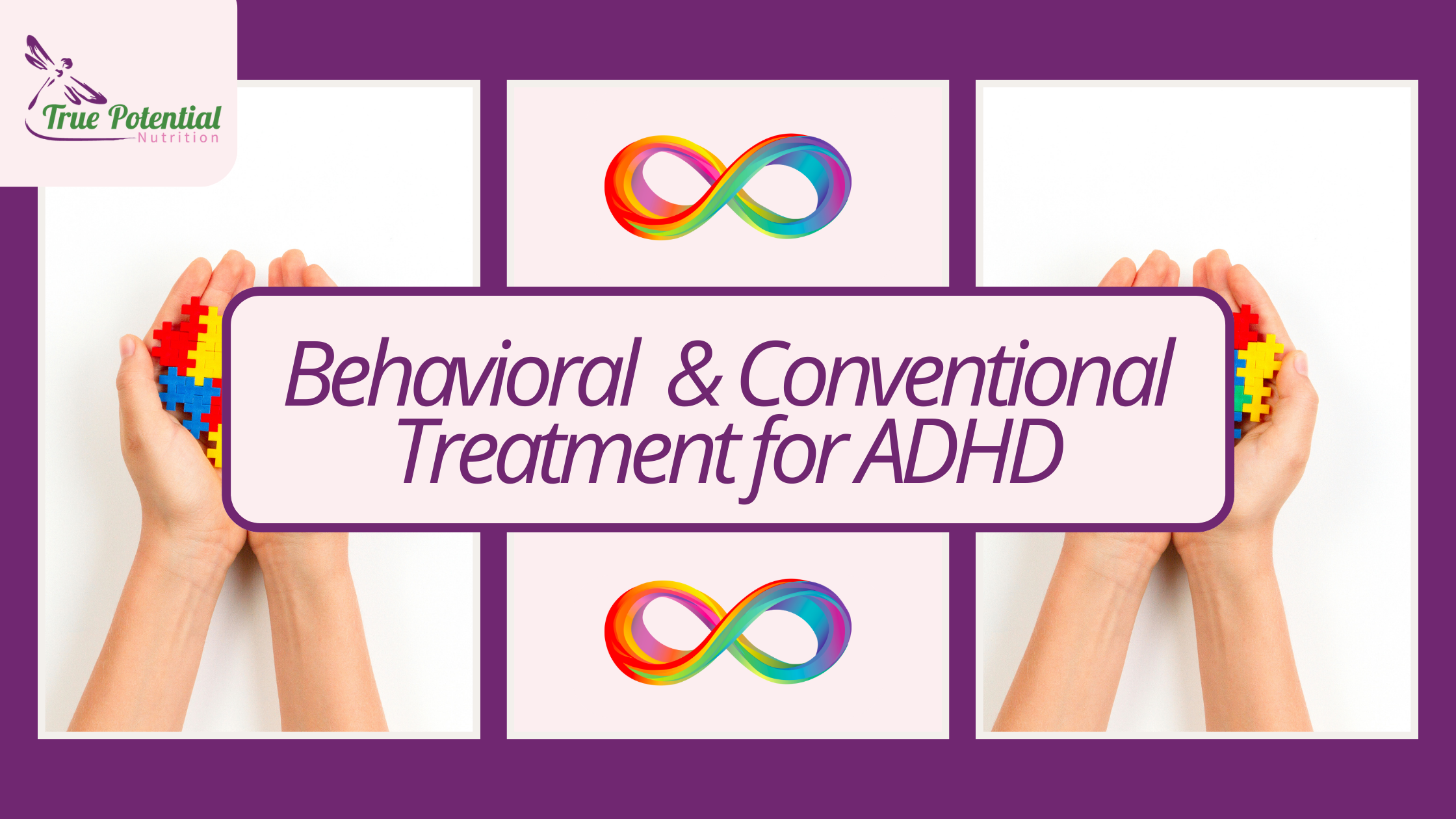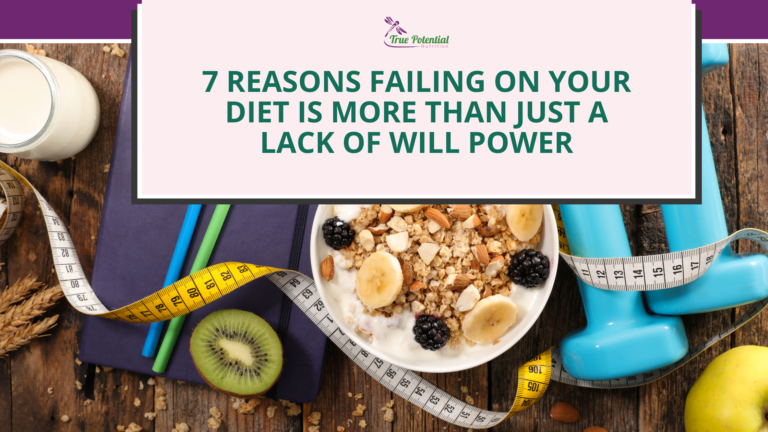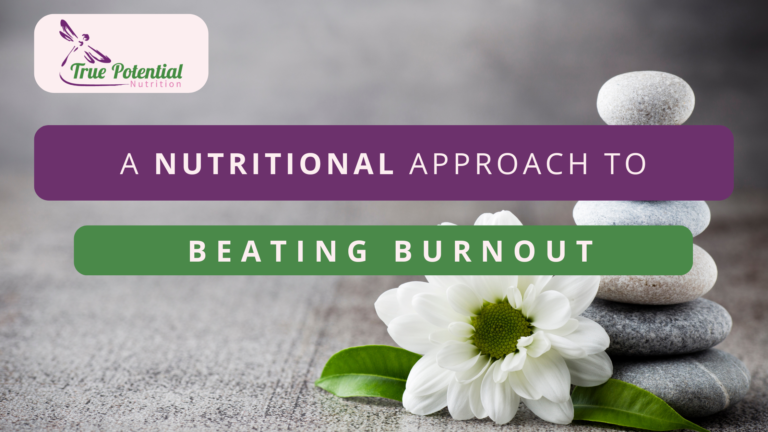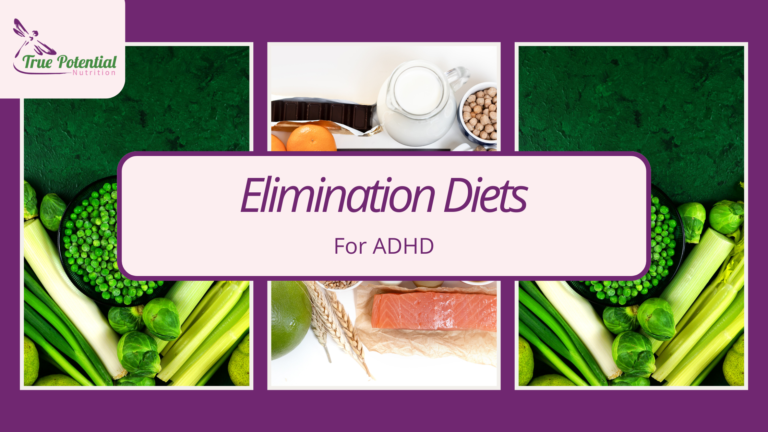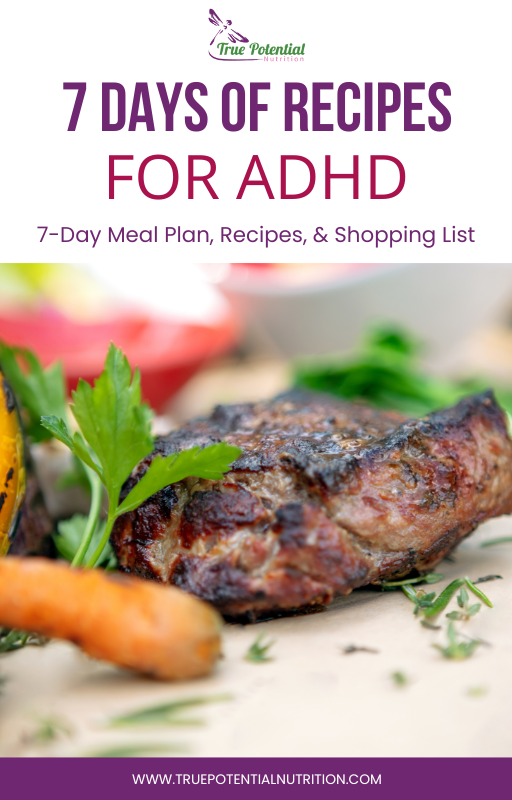By Danielle MacDowell M.S.,BCBA,M.Ed.

Main Takeaways
- Attention-Deficit Hyperactivity Disorder (ADHD) is a neurodevelopmental disorder characterized by inattention and hyperactivity.
- Conventional methods for treating ADHD include behavior therapy and medication.
- Behavior therapy is most effective when it combines parent training with direct services.
- There are a number of behavioral strategies that parents, educators, therapists,etc. can employ to support those with ADHD.
- Medications target two of the primary neurotransmitters involved in executive functioning, dopamine and norepinephrine.
- ADHD medications fall into 2 categories: stimulants and non-stimulants. Both types of medications can impact appetite and cause side effects.
- Planning large meals and snacks close to bedtime may help to increase daily calories when the medication interferes with appetite.
- Given the impact that ADHD medication can have on appetite, height and weight should be closely monitored during periods of growth and development.
- Twenty to thirty percent of people who take ADHD medication either cannot tolerate the medication due to the side effects or do not respond to the medication.
- People question whether a “medication vacation is advantageous.” The answer to this question is highly individual and should be handled under the guidance of the prescriber.
Table of Contents
Attention-Deficit Hyperactivity Disorder (ADHD) is a neurodevelopmental disorder characterized by inattention and hyperactivity. According to the CDC,[1] individuals with ADHD may have difficulty remembering, controlling impulses, sitting still and being silent for extended periods of time. These manifestations can result in difficulties in school, home, and social circles.
The prevalence of ADHD is on the rise and has been for sometime now.[2] It is unclear as to whether more individuals actually have ADHD or diagnostics have improved. Regardless, important discussions need to be had to best support individuals with ADHD.
Considering the increase in diagnoses and the impact that ADHD symptoms can have on one’s quality of life, concerted efforts are being made in the research community, the education setting, the holistic space, and the medical field to identify ways to lessen the symptoms of ADHD.
With this increased knowledge about various ways to reduce ADHD symptoms, natural therapies are gaining traction and popularity within the ADHD community.
Conventional ADHD Treatments
Conventional treatment for ADHD typically includes a combination of behavior therapy and medication. Behavior therapy is often the “first line of treatment” in children under 6. [3] It will also likely be recommended in children over 6-years old. However, medication may be suggested in conjunction with the behavior therapy.
Behavior Therapy
Behavior therapy is used to increase pro-social behaviors while simultaneously reducing challenging behaviors. Behavior therapy works best when it combines parent training with direct therapy, as this approach gives both parents and children the tools they need to be successful. Behavior therapy can take place across environments, including the school setting. Service delivery across settings can be particularly advantageous, as it teaches a child how to get his/her needs met in a variety of environments.
Behavioral Strategies to Support Individuals with ADHD
- Creating a structured environment (this can be done with signs, schedules, etc.)
- Directly teaching organizational skills
- Developing a routine
- Eliminating or reducing distractions (auditory and visual)
- Intentionally creating structured opportunities that you know an individual will do well, as this will help bolster self-esteem and confidence
- Regularly focusing on and praising positive behaviors
- Being clear, concise, and specific when giving suggestions and instruction (remove extraneous language)
- Providing an outlet for exercise, preferably outdoors
- Modeling health behaviors, including a nutritious diet, meditation, yoga, martial arts, etc.
- Establishing and prioritizing sleep routines
- Providing opportunities for exercise and movement before tasks that require a lot of attention and focus
- Scheduling breaks
ADHD Medications
For young children, behavior therapy is the first line of treatment. However, some individuals need additional support, such as medication, to get symptoms under control. The goal of medication is to improve overall executive functioning.
There are two key neurotransmitters involved in executive functioning: dopamine and norepinephrine. These two neurotransmitters play a role in attention, executive functioning, and impulse control. For these reasons, these two neurotransmitters have been a focal point in ADHD literature and the target of ADHD medications.
Research has demonstrated that medications used to increase dopamine and norepinephrine can reduce ADHD symptoms. In fact, 70-80% of patients prescribed these medications have a reduction in symptoms.[4]
Types of ADHD Medications
ADHD medications fall into one of two categories:
- Stimulants
- Non-stimulants
Stimulants are more commonly prescribed than their non-stimulant counterparts, as they tend to work quicker than non-stimulants. The increased activity of stimulants is likely due to the fact that they target both dopamine and norepinephrine while non-stimulants only act on norepinephrine.[5]
Given the efficiency of stimulants, it may seem like they are the better choice out of these two options. However, they do not always have the intended effect on ADHD symptoms. Additionally, they can cause undesirable side effects. In either of these cases, non-stimulant medications can offer an alternative to stimulant medications.[5] This information is not to imply that non-stimulants are without side effects. Both stimulant and non-stimulant ADHD medications can cause undesirable reactions.
ADHD Medication Side Effects
ADHD medications have been shown to be effective at increasing attention, executive functioning, and impulse control. Research has demonstrated a positive effect on symptoms in 70-80% of people who take the medication.[4] However, while these medications can be effective at managing ADHD symptoms, they can also cause side effects.
Side effects of ADHD medications include:
- Poor appetite
- Trouble sleeping
- Stomach irritation
- Changes in mood
- Headaches
- Increased heart rate
- High blood pressure [5]
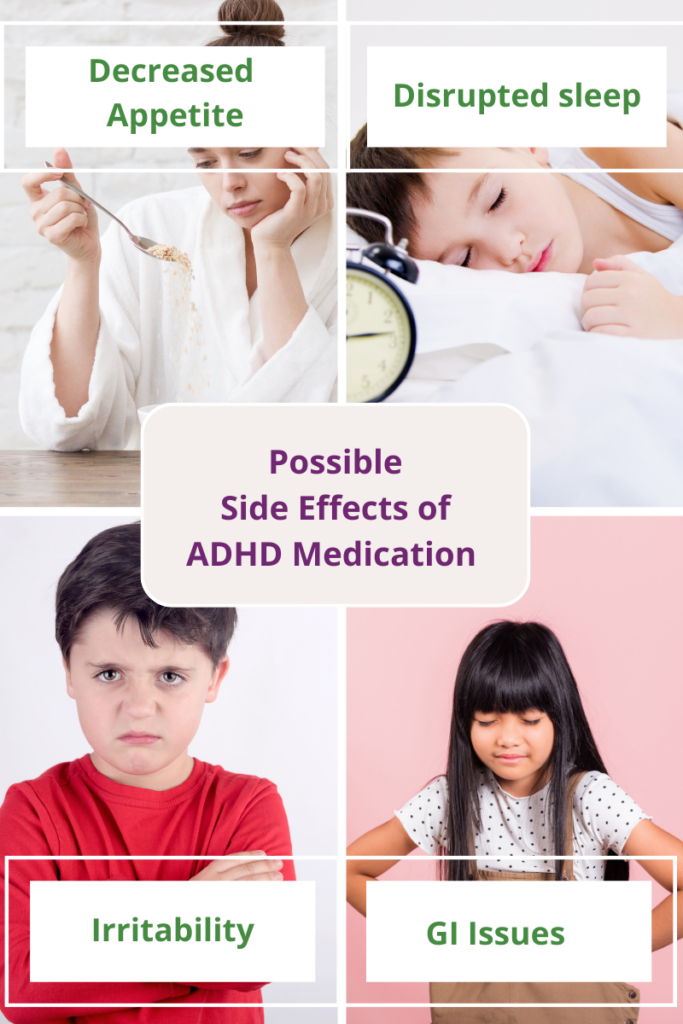
ADHD Medication and Appetite
Two of the primary side effects of ADHD medication include poor appetite and upset stomach. While these side effects can be interfering in one’s life regardless of age, they can be especially problematic during important growth periods when acquiring adequate calories, eating proper nutrients, and obtaining sufficient sleep is critical to mental and physical development.
Actions to Take if ADHD Medication is Interfering with Appetite
For those struggling to obtain adequate nourishment due to ADHD medication, Brown [2] suggests eating a large meal or snack before bedtime, after the medicine’s effects have worn off. This may help counteract the low food intake during the day.
Monitoring height and weight will also be critical to ensure that the appetite reduction hasn’t impeded on important growth milestones for children and adolescents. Similiarly, height and weight should be monitored in adults to ensure an individual is able to sustain a healthy weight while on medication.
ADHD Medication Vacation: Should You or Shouldn't You?
Given the concerns about growth and development, some practitioners will suggest that ADHD medication be avoided during school vacations. The argument for this recommendation is that a break in medication allows an individual to resume normal eating habits for a period of time. However, not everyone sees the medication break as a positive one. In a poll cited in ADDitude Magazine,[6] the following was reported:
- 59% of parents reported the cessation or reduction of meds a “success.”
- 41% reported that the decrease caused “more problems than it solved.” [6]
So, the question remains: should you continue or discontinue medications during school breaks? This is by no means an easy answer, as there are a number of things to consider, such as expectations during these breaks.
Speaking with your prescriber and individuals on your healthcare team can help you make the best decision for you or your child about whether or not to take a “medication vacation”.
*If you are contemplating any changes with your medications or your child’s medications, always check-in with your prescriber beforehand. They will help guide you through the decision making process.
Final Thoughts and Main Takeaways
Conventional treatment for ADHD typically includes a combination of behavior therapy and medication. Behavior therapy is often the “first line of treatment” in children under 6. [3] While it will likely be recommended in children over 6-years old as well, medication may be suggested as an adjunct therapy.
ADHD medications have been shown to be effective at increasing attention, executive functioning, and impulse control. While these medications can be effective at managing ADHD symptoms, they can also cause side effects, including poor appetite, sleep challenges, and upset stomach. These side effects can be especially problematic during important growth periods, when acquiring adequate calories, eating proper nutrients, and obtaining sufficient sleep is critical to mental and physical development. For these reasons, it is recommended that height and weight be monitored. Additionally, planning large meals/snacks before bedtime, once the medication’s effects have worn off, may help counteract the calorie deficit during the day.
*As always, if you are considering making any changes to medications, supplements, diet, or lifestyle, reach out to your practitioner so that they can guide you through the process.
- Center for Disease Control. What is ADHD? https://www.cdc.gov/ncbddd/adhd/facts.html. Updated on August 9, 2022. Accessed on August 15, 2023.
- Brown J. Nutrition Through the Life Cycle (Edition 7). Boston, Massachusetts: Cengage; 2020.
- Center for Disease Control. Treatment of ADHD. https://www.cdc.gov/ncbddd/adhd/treatment.html. Updated on August 9, 2022. Accessed on August 15, 2023.
- Kolar D, Keller A, Golfinopoulos M, Cumyn L, Syer C, Hechtman L. Treatment of adults with attention-deficit/hyperactivity disorder. Neuropsychiatr Dis Treat. 2008;4(2):389-403. doi:10.2147/ndt.s6985.
- Cleveland Clinic. ADHD Medications. https://my.clevelandclinic.org/health/treatments/11766-adhd-medication. Updated on October 6, 2022. Accessed on August 14, 2023.
- Sherman C. Should You Consider an ADHD Medication Vacation? https://www.additudemag.com/slideshows/consider-drug-holiday/. February 8,2023. Accessed on August 14, 2023.
